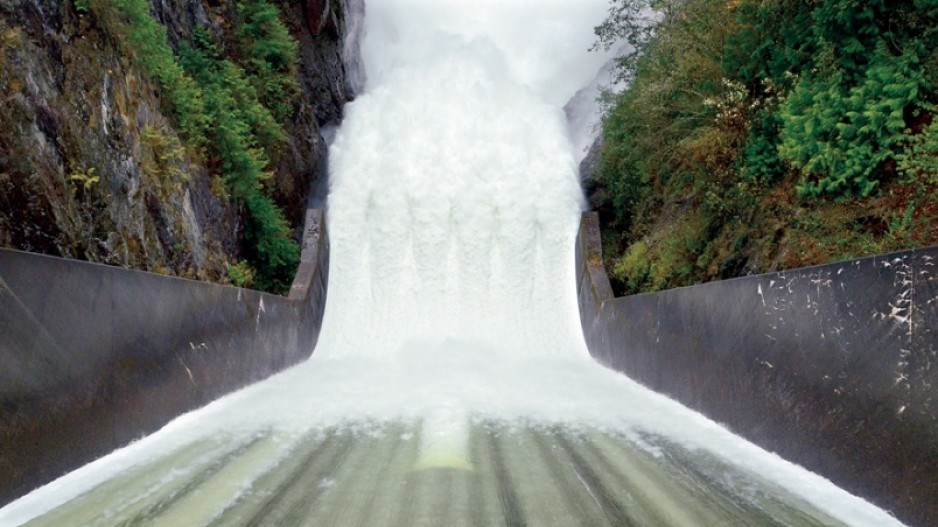Metro Vancouver is taking another look at whether the regional government should start using the North Shore’s two dams to generate hydroelectric power.
The idea has been on the table since 2010 when the regional authority began work on a Joint Water Use Plan. In 2013, they prepared a business case, which projected the Cleveland Dam at the south end of the Capilano Reservoir could generate enough juice to power 6,000 homes, said Darrell Mussatto, chairman of the Metro Vancouver utilities committee and mayor of the City of North Vancouver.
Building the power generation project would cost roughly $90 million.
The business case for power generation at the Seymour Dam was less strong.
Despite having Metro’s paperwork and request for approval, the previous provincial government sat on their application for five years. Only in January did Metro finally get the water use plan approved.
“It’s a little bit frustrating for us but we did finally hear back,” Mussatto said.
But there’s been a lot of water over the spillway since 2013.
“Back five years ago, guess what was not on the table?” Mussatto said. “Site C. So today we have to go back and look at all of our assumptions on how much it would cost to build, how much we could make from selling that power.”
If a new hydro plant were to be approved at the dam, it would likely involve digging tunnels in to the bottom of the Capilano Reservoir on the west side, installing turbines inside them and then connecting those to a new power substation to feed the energy into the grid.
It will likely take six months to a year for new business cases to be put together and come back for review by Metro, Mussatto said. Mussatto added he personally likes the idea but only if the finances make sense.
“If the business case is strong, if it doesn’t impact negatively on the park, I definitely think we should be looking at that. However, a lot of the business case assumptions may have changed because of power generation, because of power usage,” he said. “We would not do this if it loses money. We absolutely would not do this if it loses money.”




